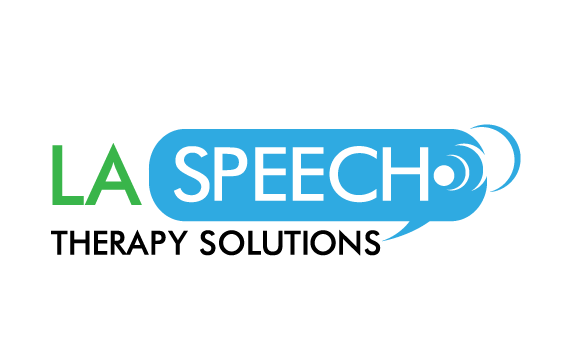
Speech therapist jobs Los Angeles offer a fulfilling career path for individuals passionate about helping others overcome communication and swallowing disorders. If you’ve recently graduated and aspire to become a speech pathologist, there are specific steps you can take to pursue this profession. Here’s a comprehensive guide outlining the necessary steps to embark on this rewarding journey:
1. Understand the Profession:
Before delving into the necessary steps, it’s crucial to understand the role of a speech pathologist. They assist people of all ages who struggle with speech, language, cognition, or swallowing for a variety of causes, such as injuries, neurological conditions, or developmental delays.
2. Obtain a Bachelor’s Degree:
The first step towards becoming a speech pathologist is completing a bachelor’s degree. Undergraduate degrees in linguistics, psychology, communication sciences and disorders, or similar subjects are helpful, however they are not necessarily strictly required. Make sure the prerequisites for graduate-level speech-language pathology programs are included in your education.
3. Complete a Master’s Degree in Speech-Language Pathology:
After obtaining a bachelor’s degree, aspiring speech pathologists need to pursue a master’s degree in speech-language pathology from an accredited institution. These programs combine coursework and clinical practicum experiences, and they normally take two years to finish.
4. Gain Clinical Experience:
During your master’s program, you’ll engage in clinical practicum experiences. These offer practical instruction under the guidance of licensed speech-language pathologists. Gaining the information and practical skills needed in the field requires clinical experiences.
5. Obtain Licensure:
Upon completion of your master’s degree, you’ll need to become licensed to practice as a speech pathologist. State-specific licensing standards differ, but they usually entail passing the Praxis test in speech-language pathology and finishing a predetermined amount of hours of supervised clinical practice.
6. Consider Certification:
While not always mandatory, obtaining the Certificate of Clinical Competence in Speech-Language Pathology (CCC-SLP) from the American Speech-Language-Hearing Association (ASHA) can enhance job prospects and professional credibility.
7. Seek Employment or Further Education:
With your degree, licensure, and potential certification in hand, you can begin seeking employment as a speech pathologist. Opportunities can be found in a variety of places, including private practices, hospitals, schools, rehab facilities, and research facilities. To progress in their careers, some people could decide to go back to school and earn a doctorate or other specialized credentials.
8. Commit to Continuing Education:
Continuing education is crucial in the field of speech pathology to stay updated with the latest research, techniques, and methodologies. In order to keep their certification and license current, speech pathologists are required by many states and certifying organizations to fulfill a specific amount of continuing education hours on a regular basis.
What Jobs can you have as a Speech-Language Pathologist?
Because of their adaptable talents, speech-language pathologists (SLPs) can pursue a wide range of careers in a variety of situations. The following are some well-known positions and environments in which speech-language pathologists may find employment:
1. Schools:
A lot of speech-language pathologists pursue fulfilling careers working one-on-one with students in preschool through high school. SLPs diagnose and treat communication issues in schools, work with educators and parents to create individualized education plans (IEPs) for students who struggle with speech or language.
2. Hospitals and Clinics:
Speech-language pathologists are employed by hospitals and other healthcare facilities to help patients with a range of problems. In this context, SLPs frequently assist patients who are recuperating from strokes, traumatic brain injuries, or other illnesses that impact speech, language, thinking, or swallowing.
3. Rehabilitation Centers:
After accidents, surgeries, or illnesses, speech-language pathologists are essential in helping patients regain their ability to communicate. To aid with recovery, they focus on swallowing difficulties, language, cognitive-communication, and speech articulation.
4. Private Practice:
A few SLPs choose to start their own businesses where they provide therapy and diagnostic services to people with communication difficulties. This environment allows for independence in scheduling, client selection, and the execution of individualized treatment programs.
5. Research and Academia:
Speech-language pathologists make a substantial contribution to their field’s research. They might carry out research, create novel treatments, or instruct upcoming speech-language pathologists in universities, research facilities, or healthcare settings.
6. Telepractice:
Thanks to technological developments, speech-language pathologists are now able to offer services remotely through telepractice. This enables SLPs to assist people who have trouble accessing conventional in-person therapy or to reach clients in remote locations.
7. Skilled Nursing Facilities:
Speech-language pathologists (SLPs) assist senior citizens who struggle with swallowing or communicating because of age, disease, or neurological disorders at nursing homes or long-term care facilities.
8. Early Intervention Programs:
Working with newborns and toddlers who exhibit indications of speech or language difficulties, speech-language pathologists are essential to early intervention programs. They help families help their young children communicate better.
9. Corporate Settings:
A few speech-language pathologists provide communication training to staff members in corporate environments, with a focus on those who might profit from accent reduction, public speaking enhancement, or communication skill development.
10. Nonprofit Organizations:
Speech-language pathologists can also work for nonprofits that cater to certain groups of people, like those with Down syndrome, autism spectrum disorders, or other developmental impairments.
What Career Barriers are there for Speech Pathologists?
Like every job, speech-language pathology has its share of unique challenges, even though it may also be quite rewarding. Nonetheless, these challenges frequently present chances for the field’s advancement and progress. Here’s a hopeful perspective on some potential obstacles in one’s profession and how to get past them:
1. Workload and Time Management:
Speech-language pathologists frequently oversee demanding caseloads that involve balancing a number of students or clients, administrative duties, and documentation needs. But this difficulty also offers a chance to improve time management abilities, set priorities wisely, and create effective processes so that you can deliver high-quality care and still have a good work-life balance.
2. Continuing Education Requirements:
The field of speech-language pathology continuously evolves with new research, techniques, and technologies. It may seem difficult to fulfill the continuing education requirements needed to keep your license and certification current. However, this also offers professionals the chance to stay current on new developments, go to conferences, participate in workshops, and seek specialized training, all of which help them become more knowledgeable and proficient doctors.
3. Limited Resources and Funding:
In certain settings, such as schools or nonprofit organizations, speech-language pathologists might encounter limitations in resources or funding for therapy materials and equipment. Nonetheless, this obstacle fosters inventiveness and originality. SLPs are able to use technology, come up with creative solutions, and work with other professionals to provide excellent services within budgetary restrictions.
4. Advocacy and Awareness:
It might be difficult to promote the field and increase public understanding of the significance of speech-language pathology. On the other hand, it offers SLPs a chance to take on the role of advocates for their patients, local communities, and the industry as a whole. SLPs can help their profession receive more respect and recognition by participating in public outreach, teaching legislators, and raising awareness of the importance of communication and swallowing difficulties.
5. Diverse Client Needs:
It can be challenging to work with people who have varied cultural origins, communication difficulties, and other issues. But because of this diversity, SLPs have the chance to embrace cultural competency, improve their communication abilities, and take a client-centered approach to meeting their individual requirements. Better results for a variety of populations are promoted by this, enabling a deeper and more inclusive approach.
6. Career Advancement and Specialization:
Navigating career advancement or transitioning into specialized areas within speech-language pathology might pose challenges. On the other hand, this creates opportunities for more study, obtaining higher credentials, or investigating specialist fields of practice including voice therapy, augmentative and alternative communication (AAC), or fluency difficulties. Opportunities for rewarding professional growth and advancement may result from this ongoing learning and specialization.
Join LA Speech Therapy Solutions for Rewarding Speech Therapist Jobs Los Angeles!
Are you a passionate and dedicated speech-language pathologist seeking fulfilling career opportunities in Los Angeles? Look no further than LA Speech Therapy Solutions!
At LA Speech Therapy Solutions, we believe in empowering our team members to thrive professionally while making a difference in our community. Join us in providing exceptional care and support to individuals seeking speech therapy services in Los Angeles. Don’t wait! Apply now or reach out to one of our team members today.





